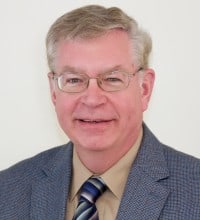By Rep. Jim Harrison
This past week Governor Scott held a special press conference to talk about the need to maintain the $150 million his administration put in its budget proposal for purposes of the state share of federal infrastructure grants. Under the so-called bi-partisan infrastructure legislation approved by Congress last year, Vermont stands to receive hundreds of millions for a wide variety of improvements, like roads, bridges, water and more. Much of the new federal funding requires a 25% match from the state.
With the luxury of a current state surplus, Scott has earmarked $150 million to cover those matches over the next few years. On hearing that some legislative leaders are more interested in spending the set aside in other ways, such as the setup of a new paid family leave program, Scott reiterated this reserve was very important to him and to the state’s economic future.
And in the same vein, the governor has said before he’s reluctant to support any tax increases this session for new programs or budget increases.
While maybe not drawing a line in the sand, it does seem clear that Scott is signaling that spending the proposed $150 million reserve in other areas or increasing taxes could result in vetoes and negative economic impacts in his view.
Other issues of interest:
Senator Ram Hinsdale, D-Chittenden Southeast, successfully led her Senate Committee to a unanimous vote on a major housing initiative, S.100. The measure includes investments in housing and regulatory changes that will allow for development of more housing projects. It will supersede local zoning that restricts multifamily homes in areas served with water and sewer. It also provides some limited exemptions from the Act 250 process for smaller housing developments.
The Clean Heat bill, S.5, continues to come under fire in the Senate by Vermonters fearing huge spikes in the cost of heating fuels. Spurred on by the Vermont Fuel Dealers Associations and others, some Senators report getting hundreds of messages from constituents urging them to vote no on S.5.
The House Agriculture Committee advanced a continuation of universal school meals for all students on a 9-2 vote (was funded last year out of a surplus in the Ed Fund). The legislation, H.165, as currently drafted, would pay the estimated $29 million annual cost by increasing property taxes. However, that could change when the bill is reviewed by the Ways & Means Committee, which might look to increase other taxes to pay for the initiative. Universal school meals refer to free lunch and breakfast for all students, regardless of family income.
The House Health Care Committee advanced a suicide prevention bill, H.230, which requires a minimum 72-hour waiting period for purchase or transfer of firearms. The measure will likely be reviewed next by the House Judiciary Committee.
The Senate Finance Committee approved S.45, which helps to reduce federal income taxes on certain pass-through small businesses by increasing the allowable cap on State and local tax deductions. (I co-sponsored the House version of the same legislation with Rep. Ode, D-Burlington).
Major childcare legislation, S.56, currently under consideration, is expected to get new estimates on its costs in the coming week. The chair of Senate Health & Welfare warned that trying to make all the changes proposed in the bill all at once could prove very costly and may have to be phased in over several years.
On Friday, the House voted to not accept the Senate version of the mid-year budget adjustment bill and set up a conference committee of three House and three Senate members to work out differences. The Senate had reduced the level of overall spending in the bill, but also added some policy language House Appropriations found problematic.
Under a new bill, H.372, introduced by Representatives Small, P-Winooski and Surprenant, D-Barnard, along with 12 others, prostitution would become legal in Vermont, although human trafficking would continue to be illegal.
In closing, I look forward to giving a brief legislative update at each of the town informational meetings on March 6 (Mendon, 6 p.m. at VTrans office, 61 Valley View; Killington, 7 p.m. at the Public Safety Building; and Chittenden, 7 p.m. at the Barstow School) and the Pittsfield Town Meeting on March 7 at 6 p.m. at the Town Hall.
Rep. Jim Harrison is the state house representative for Mendon, Killington, Chittenden and Pittsfield. He can be reached by email at [email protected] or harrisonforvermont.com.




